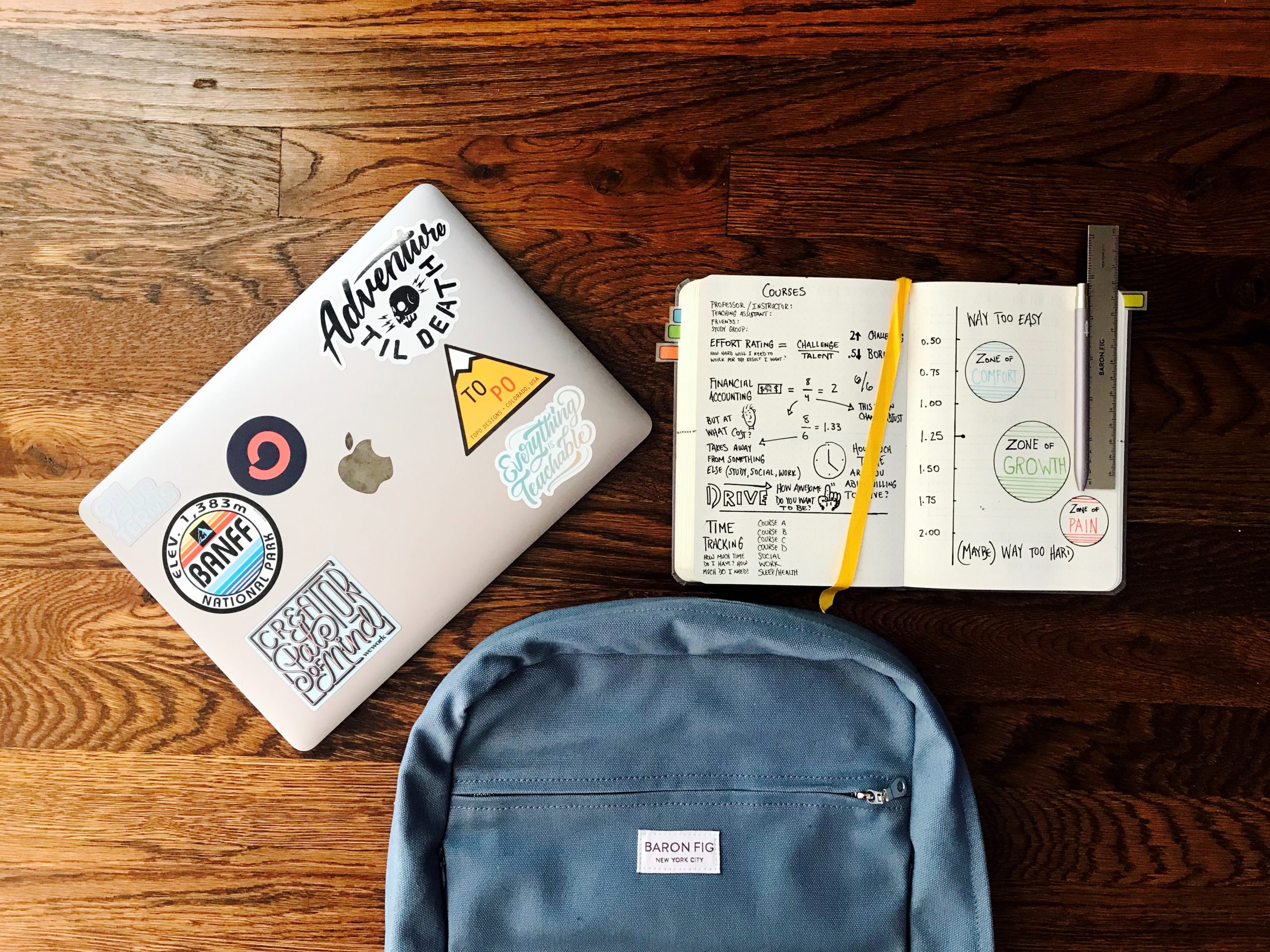Library
Subscribe
Back to School Tips | Focus, ADHD & Stress
Published on Wed Aug 28, 2019 - 3 min read

While you are braving the stores for backpacks, pencils, and notebooks don’t forget to stock up on the supplements that will keep your kids on their “A” game all year.
August is upon us, and alongside the searing temperatures, the heat is on with back to school preparations. As fall approaches the relaxed pace of summer fades away and is replaced with alarms, daily meal prep, homework, transportation; it can be both exciting and stressful for our kids. To help ease the stress, improve immunity, and keep your child’s brain in top gear, we have put together a list of foundational supplements and lifestyle tips great for school kids at any age.
Boost mental performance with a class of “smart herbs” known as nootropics. Nootropics are supplements that enhance the brain’s ability to learn, help the brain function under stress, and protect the brain from toxins1. Lion’s Mane mushroom is one of the best nootropics as it supercharges your brain’s ability to learn by stimulating neuron growth, neuron firing, and neuron repair2. Bacopa is another nootropic herb and the perfect combo with Lion’s Mane. Studies have shown that this Ayurvedic herb is a potent stress reducer that also boosts certain neurotransmitters which help with anxiety and depression3. In a recent 12-week study, children who took just 50 mg twice daily showed significant improvements in mental control, logical memory, and learning ability4.
Destress with adaptogens and essential oils. Stress is everywhere and certainly can affect our kids in school. The effects of stress are all too familiar with brain fog, behavioral issues, lowered immunity, and depression at the top of the list. Adaptogens are a class of herbs that help the body adapt to stress and significantly reduce its effects on the body. Ashwagandha is one of the best adaptogens and has been shown to help with chronic fatigue, depression, inflammation, physical endurance, stress ulcers, memory, and lowering cortisol5. Essential oils are another powerful tool in our quest for stress reduction. Lavender is the most well studied and works to calm the nervous system, slow heart rate, and reduce anxiety6. Bergamot oil relieves tension, anxiety, stress7, actively reduces chronic pain8, and even changes brain wave patterns for a more relaxed meditative state9.
Fix nutrient deficiencies with the big 3: Multivitamins, Magnesium, and Fish Oil. Multivitamins are an excellent way to make sure there are no nutritional deficiencies in your child’s diet. Vitamins and minerals are the building blocks for your child’s immune system, growth, healthy energy levels, and brain development. Magnesium is truly a miracle mineral and is especially crucial for kids going back to school. Best known for its relaxing anti-stress properties, magnesium also supports healthy bone growth, muscles, and nerve function. A recent study suggests magnesium also enhances memory and learning abilities in children10. Fish oil is critical for eye, nerve, and brain health as it contains the essential omega-3s EPA and DHA11. Recent analyses have shown that those with ADHD have lowered levels of omega 3s and that supplementing with fish oil significantly improved symptoms12.
Enhance immunity with probiotics. Let’s face it; homework isn’t the only thing your kids are going to bring home this school season. Classrooms are like Petri dishes full of the latest bugs sweeping through school. Probiotics are essential for the immune system, digestion, and brain health. A recent study showed that probiotics reduced the incidence of upper respiratory infections by 30%13. Another study showed that probiotics could protect against and even reverse food sensitivities to common allergens like corn, dairy, and gluten14. Probiotics also produce several neurotransmitters and neurohormones that not only prevent depression and anxiety but also strengthen our resistance to stress15.
Screen the screen time. Cellphones, laptops, tablets, and the like are necessary tools of modern living and tightly integrated into current curriculums. However, the unchecked and unlimited use of such technologies has been linked to lower test scores16 and a myriad of potential psychological and physical harm17. With kids using cellphones up to 8 hours per day, it is vital to set healthy limits18. The most significant impact happens at night. Digital screens emit wavelengths of light (blue) that our brains associate with wakefulness, fine during the day, but at night, this light can suppress melatonin and create poor sleep habits19. Without restful sleep, our learning abilities, emotional stability, and even immune systems can be significantly impacted20. Limiting screen time 1 to 2 hours before bedtime is vital21.
Here at the Shoppe, we hope your little (or big) scholars have their best year, avoid sick days, and stay on the path to long-lasting health!
[References]
- https://smartdrugsmarts.com/faq/nootropics/
- https://www.ncbi.nlm.nih.gov/pubmed/24266378
- https://www.ncbi.nlm.nih.gov/pubmed/12046860
- https://www.ncbi.nlm.nih.gov/pmc/articles/PMC2915594/
- http://citeseerx.ist.psu.edu/viewdoc/summary?doi=10.1.1.324.8921
- https://www.ncbi.nlm.nih.gov/pmc/articles/PMC3612440/
- https://www.ncbi.nlm.nih.gov/pmc/articles/PMC4345801/
- https://www.ncbi.nlm.nih.gov/pubmed/26996621
- https://www.ncbi.nlm.nih.gov/pubmed/20093169/
- https://www.sciencedaily.com/releases/2010/01/100127121524.htm
- https://www.ncbi.nlm.nih.gov/pubmed/23826114
- https://www.nature.com/articles/npp2017160
- https://www.ncbi.nlm.nih.gov/pmc/articles/PMC4979858/
- https://www.ncbi.nlm.nih.gov/pubmed/25157157
- https://www.ncbi.nlm.nih.gov/pmc/articles/PMC5102282/
- https://www.tandfonline.com/doi/full/10.1080/01443410.2018.1489046
- https://www.aap.org/en-us/about-the-aap/aap-press-room/pages/managing-media-we-need-
a-plan.aspx
- https://www.psychologytoday.com/us/blog/nurturing-resilience/201801/teens-and-dangerous-
levels-cell-phone-use
- https://www.ncbi.nlm.nih.gov/pubmed/31334161
- https://www.ncbi.nlm.nih.gov/pmc/articles/PMC2656292/
- https://www.sciencenewsforstudents.org/article/evening-screen-time-can-sabotage-sleep
Published By:
 Bryan Bradford
Bryan Bradford